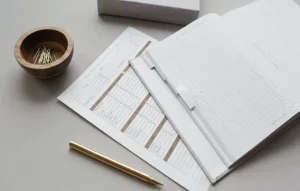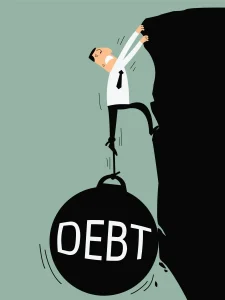You may have heard the term ‘priority debt’ but not really stopped and given the phrase much thought, but it’s important to understand what makes a debt a priority and what can happen if you fail to maintain payments to them. A priority debt by definition should be treated as more important than any other debt, so understanding the distinction between a priority debt and a non-priority debt will allow you to manage your finances more efficiently and avoid any unwanted collection action if you are unable to pay. Let’s explore…
So, what are priority debts?
In short, a priority debt – when left unpaid or ignored – can result in severe repercussions. The most common priority debts are mortgages, secured loans, and hire purchase agreements; if you do not maintain your contractual repayments to these types of debt, it can cause repossession, fines, or bailiff action.
Perhaps just as importantly, household bills that have not been paid will turn into arrears and, consequently, will need to be treated as a priority debt. Again, the consequences of not maintaining these bills can be serious: if you fail to pay your rent, you could be evicted; if you do not pay your council tax, it could lead to fines or court summons; not paying your gas and electric can lead to disconnection or an attachment of earnings, so it’s best to treat all household bills as a priority to avoid any further action being taken.
 What about non-priority debts?
What about non-priority debts?
Credit cards, payday loans, unsecured loans, overdrafts, catalogues, and store cards are all examples of non-priority debts. Whilst it is still necessary to try to maintain payments to all types of debt, the short-term repercussions of not meeting these payments are much less severe than failing to maintain payments to your priority debts.
Missing payments to non-priority debts will negatively affect your credit rating and may impact your ability to obtain further credit, but it could also become much worse if you ignore them completely.
The provider of your credit card or loan could contact the court and request that a County Court Judgement (CCJ) is made against you. Once a CCJ is applied, it could then lead to a charging order being applied against your property.
 What if I am struggling to pay my priority or non-priority debts?
What if I am struggling to pay my priority or non-priority debts?
Everyone will experience a change in their circumstances at some point in their life which may have a detrimental effect on their finances, take the pandemic for example: many people were unable to make payments to their priority debts and stress and uncertainty were rife.
The best action to take when faced with financial uncertainty is to get in touch with your provider and articulate your circumstances; they will more-often-than-not allow you to take a temporary break from payments whilst your finances are up-in-the-air.
When your situation does become more manageable and payments can resume, the provider will either ask that you pay a little more for a short period of time to make up for the months that you have missed, or they may extend the term of the agreement.
Fundamentally, you want to be open and honest with your debtors and ask if they will offer forbearance when you are struggling; ignoring the problem may be the easiest option, but it won’t go away.
Why not get help from us?
If you feel as though your debts have become unmanageable, it may be worth asking for help and support from a company such as Angel Advance. We can provide expert advice on how to deal with your priority and non-priority debts and we can explore all UK-based financial solutions and whether you would benefit from them. It’s never been easier to get help with your debts: you can use our free Online Debt Advice Tool or contact us on 01925 599400.


